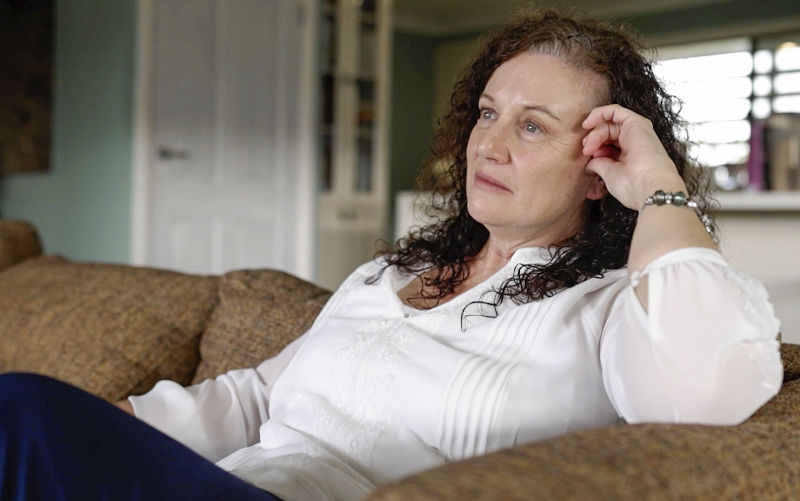Kerry's recent articles

17 December 2025
Conflicts of interest: defending the indefensible
Evidence to a parliamentary inquiry has raised serious questions about conflicts of interest and how they are being managed.

12 September 2025
NSW AG based Kathleen Folbigg’s compo on ‘no state malfeasance’, but no one has looked
When baby Azaria Chamberlain’s matinee jacket was found at Uluru in 1986, it led to the prompt release of her mother, Lindy Chamberlain, from prison.

13 August 2025
Grossly inadequate compensation offered to Kathleen Folbigg
On 5 June 2023, Kathleen Folbigg was released from prison following 20 years of imprisonment after having been wrongfully convicted of killing her four children over a 10-year period.

10 July 2025
Who wants to serve on a jury? Is the jury system still the best we can do?
You may have been following the current criminal trial in Victoria where a woman is accused of murdering three people by serving them a meal laced with death cap mushrooms.

2 July 2025
Research misconduct: Strengthening Australia’s research integrity system
A new book, Doctored: Fraud, Arrogance and Tragedy in the Quest to Cure Alzheimer’s by Charles Piller is a deeply dispiriting story. Dispiriting in particular, as it yet again tells a story of harmful unchecked research misconduct.

2 March 2025
Can Kathleen Folbigg ever be adequately compensated for her wrongful conviction?
In 2023 Kathleen Folbigg was pardoned and released after 20 years of wrongful imprisonment; soon after, her convictions were quashed by the NSW Court of Criminal Appeal. There remain two further actions before this sorry saga can be declared closed: (a) the awarding of proper compensation and (b) a full inquiry, best done by a Royal Commission, into what really went wrong. Folbigg’s legal team is pursuing compensation. On what has been made public so far, there is little likelihood of a full inquiry and so yet again the criminal justice system will not learn from its mistakes.

27 December 2024
Another wrongful conviction? UK nurse Lucy Letby may be a scapegoat for an under-funded NHS
In August 2023, nurse Lucy Letby was convicted of the murder of seven babies and attempted murder of six babies in the neonatal unit of a UK National Health Service (NHS) hospital. The Australian media has reported on the current instalment of the saga (viz. a judicial inquiry into conditions at the hospital where Letby worked).

6 November 2024
Conflicts of interest and the subconscious mind
In recent days, our media have covered two “scandals” involving allegations against public figures of failing to adequately address identifiable conflicts of interest.

19 June 2024
Why is Australia’s criminal justice system so resistant to change?
How many more wrongful convictions does Australia have to have before state and federal attorneys-general and senior members of the legal profession agree that they must address this serious problem?

22 April 2024
Was the Covid-19 pandemic a ‘relatively mild pandemic’?
Recently, a former Prime Minister (who also once served as Health Minister) was quoted as declaring “the Morrison government’s Covid response as a ‘grotesque overreaction’ to a ‘relatively mild pandemic’”.

21 December 2023
Kathleen Folbigg’s wrongful convictions: Quashed, but why did they happen?
The NSW Court of Criminal Appeal has adopted the findings of the inquiry of the Honorable Thomas Bathurst AC KC into the convictions of Ms Kathleen Folbigg. As a result, her five criminal convictions from 2003 have been quashed and she has been acquitted.

28 September 2023
Absence of systematic compensation for wrongful convictions compounds the injustice
Commentators have sought to predict what level of compensation Kathleen Folbigg will receive for her twenty years of wrongful imprisonment. None have asked a more important question: is it possible to adequately compensate a wrongfully convicted person for all the harms that are now known to ensue from prolonged incarceration?

25 September 2023
Catholic boarding school experiences: the need for a balanced perspective
Avid readers each day of Pearls and Irritations (of which I am one) hopefully enjoyed Paddy Gourley’s review of Martin Flanagan’s new memoir ‘The Empty Honour Board: A School Memoir’. Stimulated by that review I have now read Flanagan’s remarkably honest and painful memoir. His story is consistent with repeated accounts of sexual abuse and unwarranted physical punishment in Catholic schools across Australia in the 1950s and onwards. Bad news receives more attention than good news. However there are and were many teachers in the Catholic education system (the vast majority probably) whose fine contributions have been accidentally tarnished by...

5 July 2023
Miscarriages of justice: Kathleen Folbigg is one of an unknown number of people wrongly convicted
Most Australians have little idea how frequently miscarriages of justice in the form of wrongful convictions occur in Australia. This lack of knowledge should be no surprise; not even our criminal justice system tracks such data let alone researches the possibility of wrongful convictions. In the absence of data, most people, including many in the criminal justice system, see instances of wrongful convictions such as those of Lindy Chamberlain and Kathleen Folbigg as rare aberrations.

13 June 2023
The wrongful conviction of Kathleen Folbigg: why did it happen and what must be done to stop it from happening again?
It is 41 years since Lindy Chamberlain was convicted for a non-existent crime, spent nearly five years in prison, and had her family life destroyed.

9 February 2023
Australia’s problems with cosmetic surgery: why they have happened and how to fix them
Hardly a month goes by without a new media report (and here) of alleged scandalous conduct of some doctors who call themselves ‘cosmetic surgeons’ but who lack recognised specialised surgical training. These reports have tended to focus on the harm done to patients and generally failed to explain to the public how and why the situation has arisen. While some commentators have blamed the medical profession for failing to regulate itself, this is far from the reality.

28 November 2022
A matter of conscience: what to do about the national medical regulator
The national medical regulator, the Australian Health Practitioner Regulation Agency (AHPRA), is responsible for the oversight of fifteen different groups of health professionals, covering a total of 825,700 practitioners. AHPRA has become a huge and well-resourced bureaucracy which now has the capacity to ‘pull the wool over the eyes’ of distant and poorly-briefed health ministers whose accountability for the regulator is remote.

26 October 2022
Some overlooked questions about the Medicare fraud hullabaloo
The ABC’s 7.30 Report is not inclined to sensationalism. Why on earth then did they turn a possibly valuable story on Medicare into a sensationalist one?

4 October 2022
How to become a republic: Lessons from the Republic of Ireland
There are likely to be many obstacles on the long road to Australia inevitably becoming a republic but the biggest will be finding agreement on how we choose our new head of state. For the 1999 republic referendum, the then Prime Minister John Howard, an avowed monarchist, was well aware of this obstacle, using it cleverly to divide the supporters of a republic and thereby ensure that the no vote won.

23 September 2022
Advertising by doctors: Helpful or harmful?
It was only as recently as 1979 that Dr Arthur Burton wrote in his Australian textbook on Medical Ethics and the Law ‘It is the hallmark of a responsible profession that its members do not advertise, and so the ethical rules relating to advertisement are strict.’ In his book he quoted the then advice of the Medical Board of Victoria that: ‘Advertising has for many years been held judicially to constitute infamous conduct in a professional respect, and therefore a ground for deregistration.’

26 August 2022
Australia’s problems with cosmetic surgery: why they have happened and how to fix them
Hardly a month goes by without a new media report (and here) of alleged scandalous conduct of some doctors who call themselves ‘cosmetic surgeons’ but who lack recognised specialised surgical training. These reports have tended to focus on the harm done to patients and generally failed to explain to the public how and why the situation has arisen. While some commentators have blamed the medical profession for failing to regulate itself, this is far from the reality.

13 August 2022
The truth at last for Kathleen Folbigg
It was Emma Cunliffe’s 2011 piercing analysis of the 2003 NSW trial of Kathleen Folbigg for the alleged murder of her four children which opened the window on to her trial’s serious shortcomings.

23 June 2022
The value of the Federal Administrative Appeals Tribunal and the worth of its non-legal members
The Federal Administrative Appeals Tribunal (AAT) serves an important role for the citizens of Australia. Its value and the work of its members including its non-legal members need to be more widely appreciated and supported.

12 December 2021
Juries and bad forensic science on trial in Victorian child murder case
A new book asserts that Robert Farquharson, condemned over the deaths of his three sons, was wrongly convicted, writes Kerry Breen.

15 November 2021
It's not forensic rocket science: why we need a Criminal Cases Review Commission
An independent review body will buttress the courts, remedying miscarriages of justice by deciphering often complex expert evidence.
21 June 2021
Should procedural specialists be the highest earning doctors in the nation?
Data shows that procedural specialist doctors earn more per year than many other professionals in Australia and that the highest earning doctors in Australia are surgeons and anaesthetists, earning almost twice what general practitioners (GPs) earn. Why is this so and can it be justified?
20 June 2021
Rogue doctors and the good character test
With the death of former medical practitioner, Geoffrey Edelsten, one can predict that there will be commentators and journalists who will seek to laud him. Here is a different view.
24 March 2021
Do we still burn witches? The petition to pardon Kathleen Folbigg over the death of her four children
The recent petition to the NSW Governor to pardon Mrs Kathleen Folbigg led me to read the 557 page report of the inquiry conducted into her case in 2019. What I read made me feel uncomfortable and raises a number of questions for the legal system and for all of us who are subject to it.
1 November 2020
The Australian Honours System: Abolition or Reform?
In the last few years, each six months when the office of the Governor-General reveals the names of new recipients of Honours under the Australian system, now 45 years old, widespread criticism erupts briefly but is soon forgotten. Now, halfway towards the next set of announcements might be the time to re-start a longer debate.
28 September 2020
Out-of-pocket medical financial abuse
Charging unjustifiable and unreasonable fees leading to very high out-of-pocket expenses for specialist medical care is an abuse of power and should be called financial abuse. It should also be deemed a form of professional misconduct.
3 September 2020
Sexual misconduct in our society: Can we do better?
Collectively our society can do better. Women should not have to rely on voluntary social networks, valuable though they are, to have the confidence to come forward when they encounter unacceptable sexualised conduct.
23 August 2020
Harmful research misconduct, is our research integrity framework adequate?
Could harmful research misconduct happen in Australia? What steps are followed if an allegation of research misconduct is made in Australia? Is our system sufficiently robust to deal with allegations impartially and justly?
